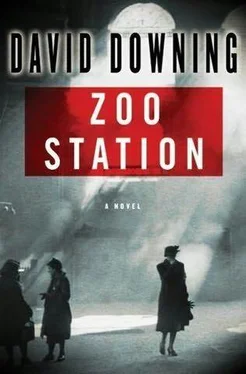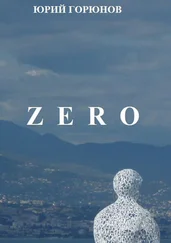David Downing - Zero Station
Здесь есть возможность читать онлайн «David Downing - Zero Station» весь текст электронной книги совершенно бесплатно (целиком полную версию без сокращений). В некоторых случаях можно слушать аудио, скачать через торрент в формате fb2 и присутствует краткое содержание. Жанр: Шпионский детектив, на английском языке. Описание произведения, (предисловие) а так же отзывы посетителей доступны на портале библиотеки ЛибКат.
- Название:Zero Station
- Автор:
- Жанр:
- Год:неизвестен
- ISBN:нет данных
- Рейтинг книги:5 / 5. Голосов: 1
-
Избранное:Добавить в избранное
- Отзывы:
-
Ваша оценка:
- 100
- 1
- 2
- 3
- 4
- 5
Zero Station: краткое содержание, описание и аннотация
Предлагаем к чтению аннотацию, описание, краткое содержание или предисловие (зависит от того, что написал сам автор книги «Zero Station»). Если вы не нашли необходимую информацию о книге — напишите в комментариях, мы постараемся отыскать её.
Zero Station — читать онлайн бесплатно полную книгу (весь текст) целиком
Ниже представлен текст книги, разбитый по страницам. Система сохранения места последней прочитанной страницы, позволяет с удобством читать онлайн бесплатно книгу «Zero Station», без необходимости каждый раз заново искать на чём Вы остановились. Поставьте закладку, и сможете в любой момент перейти на страницу, на которой закончили чтение.
Интервал:
Закладка:
Russell told him. “I’m English,” he added.
The man was not impressed. “We all have to come from somewhere. Now empty your pockets.”
Russell did as he was told. “Who’s in charge here?” he asked. “The police or the SA?”
The policeman gave him a contemptuous look. “Take a guess,” he suggested.
Russell felt a sinking sensation in his stomach. “I want to speak to the British Consulate,” he said.
“No need for that,” the Truppfьhrer said behind him. “Now what’s your hotel name and room number?” Armed with this information, he went back out through the doors. Russell had a glimpse of gray light in the eastern sky.
He tried pleading with the duty officer, and received a shrug for his pains. A younger policeman was summoned to take him downstairs, where two rows of cells lay on either side of a dimly lit corridor. They had brick walls and tiled floors, black up to waist level, white above. Only a splash of blood was needed to exhaust the Nazi palate.
Russell slumped to the floor in his cell, his back against the far wall. No need to feel frightened, he told himself. They wouldn’t do any permanent damage to a foreign journalist.
They would if they thought he was a spy. What had Shchepkin put in the damn envelope? If Russell’s past experience with the NKVD was anything to go by, there was an institutional reluctance to spell anything out which verged on paranoia. And they wouldn’t want to leave him with anything he might conceivably use against them.
All of which was good news.
But what language was the damn letter written in? If it was in Russian, or if rubles were mentioned, that would be enough for goons like the Truppfьhrer.
He told himself to calm down. He had talked himself out of worse situations than this.
His shin was oozing blood, but didn’t look too bad. His stomach felt queasy, though whether from hunger or fear was hard to tell. Both, probably.
It felt like more than an hour had passed when he heard feet on the stairs. Booted feet, and several of them.
The sliding on his door window clanged open and clanged shut again. The boots moved on, another clang, but this time a door swung open. A voice protested-a voice Russell thought he recognized-the Jew who’d tried to protect his wife. The voice rose, and was cut off, leaving echoes inside Russell’s head. What had cut it off? A fist? A knee? A cosh? A door slammed shut.
Silence reigned, a heavy silence which offered no reassurance. Eventually a door scraped open, a remark drew laughter, and the boots were back in the corridor. Russell felt his breath catch as they headed his way, but they clattered on past and up the stairs, leaving him staring at his shaking hands. Pressing his ear to the door he could hear no groans of pain, only the stillness of unconsciousness or death.
Time went by. He’d rushed out of the hotel without his watch, and when a tray of food was eventually shoved through his hatch he wondered if it was lunch or supper. The boots never came back, and with each hour that passed he found himself feeling a little more optimistic. When the door finally opened his stomach lurched, but it was only the policeman who’d brought him down.
“This way, Herr Russell,” the man said, nodding toward the stairs.
They beat people up in the cells, Russell told himself. Upstairs had to be better.
Two corridors and two flights of stairs later, he was ushered through a door labelled KRIMINALINSPEKTOR TESMER. The man himself had greased black hair, blue eyes, thin lips, and a bad case of five o’clock shadow. “Please sit,” he told Russell.
He took one last look at the Englishman’s passport, and then passed it across the desk with the journalist’s accreditation. There was no sign of Shchepkin’s envelope.
“Everything is satisfactory,” Tesmer said with a sudden smile. “And I’m sorry it has taken so long.”
Russell reached for his documents. “I can go?” he asked, trying not to sound too relieved.
“Just one question.”
“Yes?” There was no life behind the eyes, Russell thought. This was a man to be careful with.
“Why did you come to Danzig, Herr Russell? To write a story about the Jewish children?”
“No. I had no idea a kindertransport was leaving from here. I’m staying at the hotel opposite the station, and the noise woke me up. I just walked across to see what was going on.”
“Then why did you come?”
Why indeed. Because he’d felt drawn to the place, the way a good journalist was always drawn to a story that mattered. A city in thrall to thugs and fools, and headed for disaster for precisely that reason. Danzig was Europe writ small. It was a story for everyone.
Almost everyone.
“Stamps,” he said, suddenly remembering a conversation he’d overhead in the Cafй Weitzke. The city’s German and Polish post offices were both putting out stamps to commemorate centuries-old victories over each other. “I do occasional pieces for philately journals, and the two post offices here are bringing out some interesting new issues. I’m hoping to interview the postmasters tomorrow.”
Tesmer looked disappointed, like a fisherman realizing that this catch was too small to eat. “Enjoy your stay,” he said curtly.
Once outside, Russell discovered it was almost ten o’clock. A bar supplied him with a sandwich and a much-needed drink, and he trudged back to his hotel through mostly empty streets. Shchepkin’s envelope was still lying where he’d left it.
It had been opened, though. Russell took out the single sheet and read it. They wanted four articles of between 1,200 and 1,500 words, delivered at fortnightly intervals, beginning in mid-January. The money was more generous than he’d expected-as much as an ordinary Soviet worker earned over a five-year-plan. The thought crossed his mind that a car would transform his Saturdays with Paul.
The letter was in German, the promised fee in Reichsmarks. There was nothing to say where the offer came from or what the articles would be about. “God bless the NKVD,” Russell murmured to himself.
He woke around ten. Thick snow was cascading past his window, almost obscuring the station opposite. He used the lobby phone to call the two post offices, and was granted audiences with their postmasters late that afternoon. By the time he emerged from the Cafй Weitzke on Lange-Gasse, replete with scrambled eggs, Kashubian mushrooms, and a mocha, he still had five hours to kill.
It had almost stopped snowing, but the sky was still heavy with cloud. As he stood there wondering what to do, there was a sudden swell of music from the loudspeakers which peppered the city. Hitler’s New Year speech to the nation, Russell remembered. Danzig wasn’t yet part of Germany, but try telling the Nazis that.
Russell sometimes enjoyed listening to Hitler. The man’s sheer effrontery was entertaining, and knowing that millions were being taken in by his ludicrous bloodlust gave the whole experience a deplorably thrilling edge. If the Fьhrer told them that gravity was a Jewish trick then millions of Germans would be practicing levitation before the sun set.
But Russell wasn’t in the mood. A couple of hours by the sea, he thought. There wouldn’t be any loudspeakers on the beach.
Hitler was just being introduced when a tram with a Brцsen destination board burrowed out of the Lange-Gasse Gate. Russell took a seat on the right and watched through the window as the tram skirted the Holz-Markt, swung right into Elisabeth-Wall, and passed his hotel at the bottom of the Stadt-Graben.
It was about six kilometers to Brцsen. Russell had taken the same ride back in 1935, during his last visit to Danzig. He’d been doing a series of articles on Germans at play, and it had been the middle of summer. The resort had been awash with holiday-makers, and he had gone for a paddle.
Читать дальшеИнтервал:
Закладка:
Похожие книги на «Zero Station»
Представляем Вашему вниманию похожие книги на «Zero Station» списком для выбора. Мы отобрали схожую по названию и смыслу литературу в надежде предоставить читателям больше вариантов отыскать новые, интересные, ещё непрочитанные произведения.
Обсуждение, отзывы о книге «Zero Station» и просто собственные мнения читателей. Оставьте ваши комментарии, напишите, что Вы думаете о произведении, его смысле или главных героях. Укажите что конкретно понравилось, а что нет, и почему Вы так считаете.












